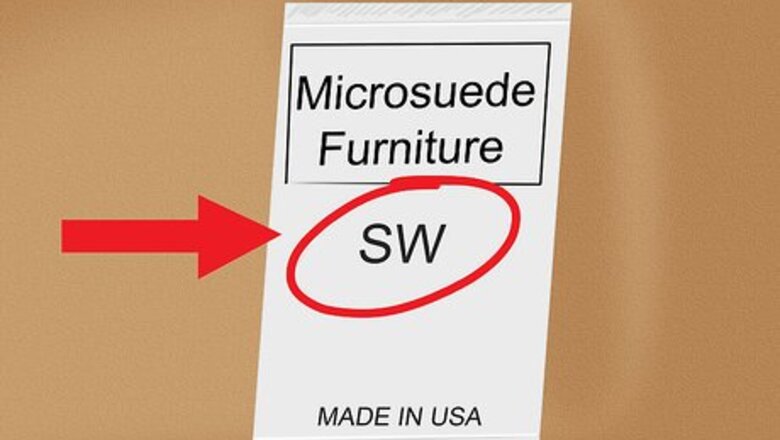
views
Cleaning Microsuede Furniture
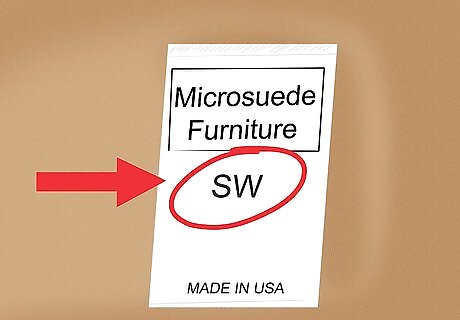
Check the labels. Furniture labels will often provide you with a code that tells you how to clean—and how not to clean—your furniture upholstery. Microsuede will generally have one of three labels: W, which means wash with water-based cleaners. S, which means wash with solvent-based cleaners. SW, which means you can use either water-based or solvent-based cleaners.
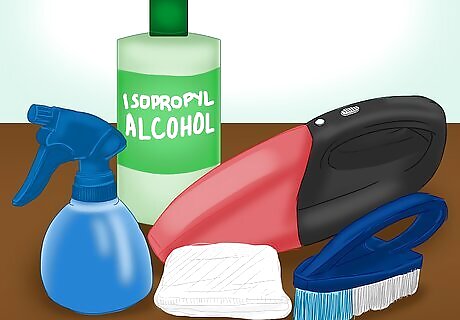
Assemble your cleaning equipment. Your main cleaning agent will be isopropyl (rubbing) alcohol, or another clear alcohol, such as vodka. Alternatively, if your furniture has a W or SW code, you can also use a solution made of water and mild soap or detergent. However, microsuede is prone to watermarking, so alcohol is recommended since it dries quickly. Along with your cleaning agent, you’ll also need a: Clean, empty spray bottle White or undyed sponge, towel, or cloth that’s both clean and dry Soft-bristled brush Vacuum cleaner You can also use baby wipes because they contain alcohol.
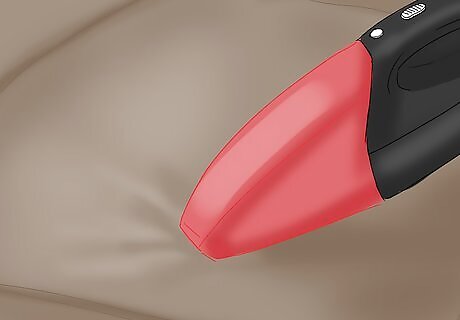
Vacuum the furniture. Remove the cushions and use a soft-brush attachment to vacuum up crumbs, dust, and other debris. Pick up large debris with your hands. Be sure to get into all the nooks, crannies, and cracks, and vacuum the cushions as well.
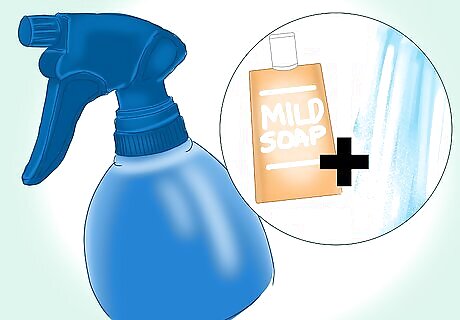
Fill the spray bottle with your cleaner. Use alcohol for any furniture, or if you prefer (with W and SW furniture), mix about one-half ounce (one tablespoon) of mild liquid soap or detergent with 33 ounces (one liter) of water. Shake well.
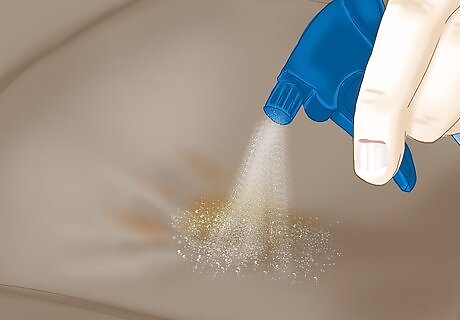
Test the furniture. Find an inconspicuous area that’s out of sight and do a test patch with your cleaning agent. Spray a small spot with the alcohol or soap solution, dab it with a clean cloth, and let it dry. After an hour or so, check to see that the cleaner hasn’t caused any: Discoloring Changes to the texture (a little stiffness in the fabric is normal) Color bleeding Fabric shrinkage
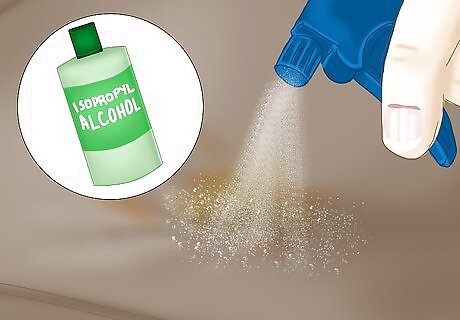
Clean the furniture. Spray a small area or a single stain with a minimal amount of cleaner (this will prevent watermarks). Use your clean cloth or sponge to wipe the area down, blotting stains and soiled spots. Rotate your cloth often to a clean spot so you aren’t just spreading dirt around. Work in small patches or tackle one stain at a time until the entire piece is clean. Don’t forget to clean the cushions as well. If you encounter areas that are particularly stubborn, try rubbing them gently with a clean, soft-bristled toothbrush.
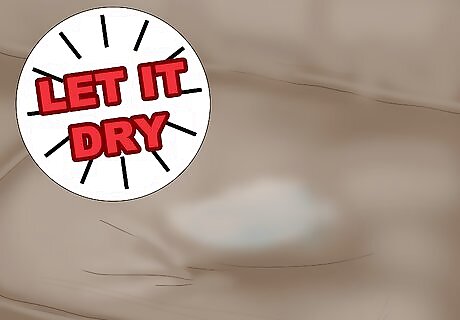
Let the furniture dry. Using alcohol or minimal amounts of water will ensure that your microsuede is dry in no time, but you can also use an oscillating fan to speed up the process.
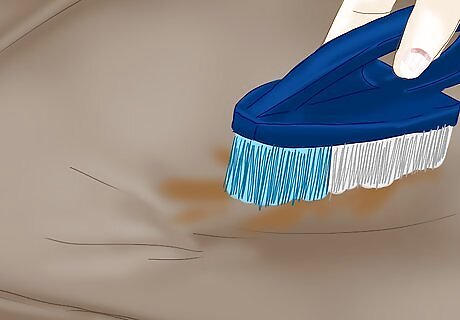
Brush the fabric. Microsuede can become stiff when it’s cleaned. To restore the texture and return the fabric to its soft state, gently buff it with a soft-bristled brush. Return any cushions to the furniture when you’re done.
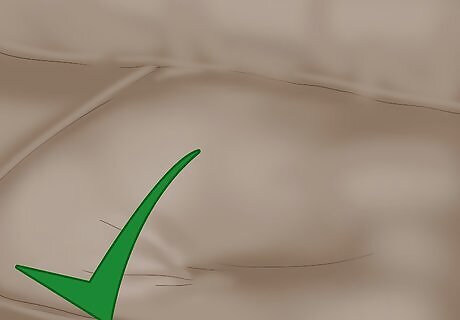
Keep your microsuede furniture clean. It is recommended that you vacuum your furniture every week or so, especially if it gets frequent use. Deal with spills immediately to prevent staining. Microsuede is designed to repel liquids, so spills will initially bead on the fabric, giving you time to dab them up with a clean cloth before they are absorbed and stain. In case of a spill that you didn't notice right away, deal with stains as soon as you spot them using the same cleaning process. Spray a small amount of alcohol on the area and wipe with a clean cloth.
Cleaning Microsuede Fabrics
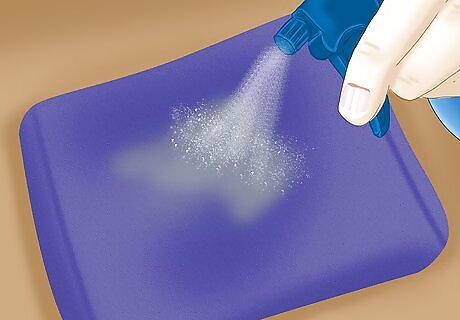
Spot clean stains. Microsuede is used as a fabric for many items, including clothing, towels, drapes, and mops. These can all be cleaned easily, but handwashing is recommended. Using a spray bottle filled with alcohol or polyester cleaner, spray soiled areas and blot or dab the stains with a clean cloth. Before cleaning any fabric, always read all tag directions regarding proper washing instructions. Perform a small test patch on the fabric somewhere unnoticeable before applying any cleaning solution to the entire cloth.
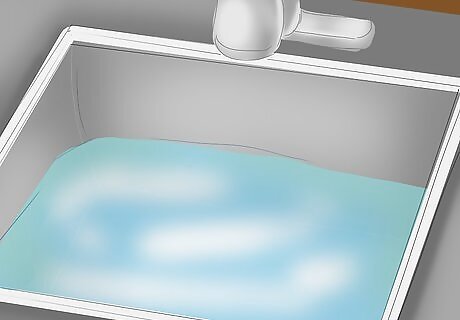
Fill a sink with warm water. You only need the sink about half full or three-quarters of the way full, depending on how many items you'll be washing. As the water is running, mix in one-half to one ounce (one to two tablespoons) of liquid laundry detergent or mild soap. Wash your microsuede items one at a time. Tackle stubborn dirt with a soft-bristled brush. Alternatively, you can wash microsuede items in the washing machine on the delicate or hand-wash cycle. Wash microsuede items alone together, as this material tends to collect lint from other fabrics. Do not use bleach products or fabric softeners on microsuede.
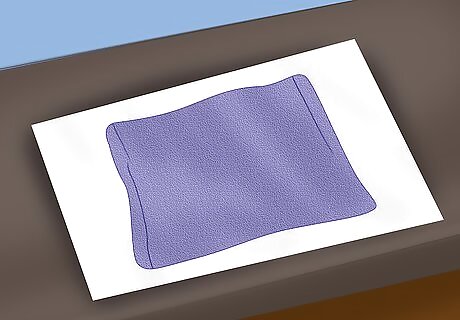
Dry the items. When your items are clean, squeeze each one to get out the water. Lay a clean, dry towel flat on a counter or table. Lay a microsuede item flat on top of the towel. Roll the towel up tightly with the item inside, and the towel will absorb the excess moisture. Unroll the towel and hang the item to air dry. Repeat with all your items, replacing the towel with a dry one if necessary. A dryer can be used on low-heat or a no-heat setting, but it’s best to hang microsuede fabric on a clothesline or on hangers to air dry.
Cleaning Microsuede Shoes
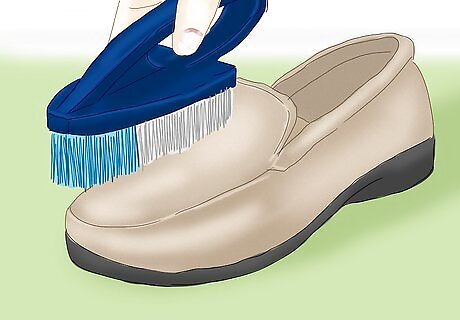
Brush off dirt. Using a soft-bristled brush, get rid of as much dirt, mud, and other particles as you can.
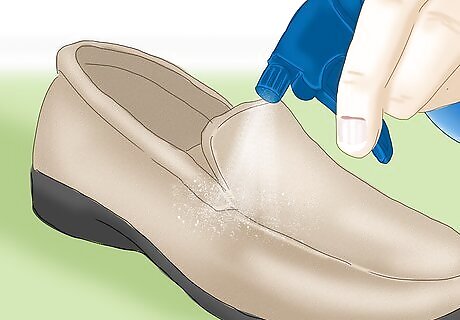
Spray the shoes with cleaner. Use alcohol or a soap-and-water solution. Spray small areas at a time, and brush each area with a toothbrush or soft-bristled brush.
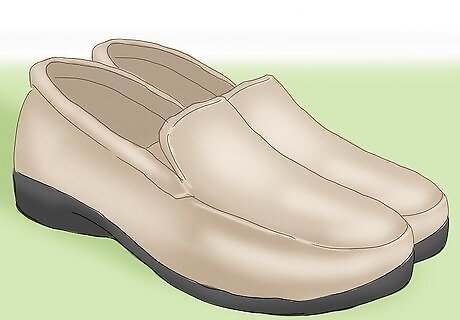
Allow the shoes to air dry. When they are dry, brush them with a dry, soft-bristled brush if necessary to buff the fabric and restore the microsuede’s soft texture.











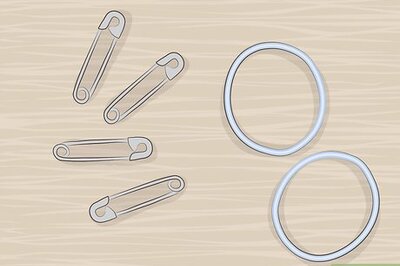


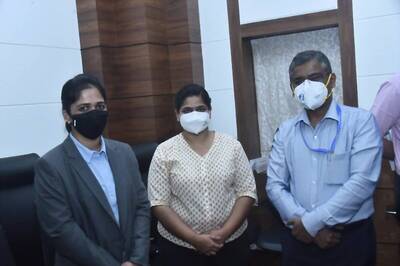



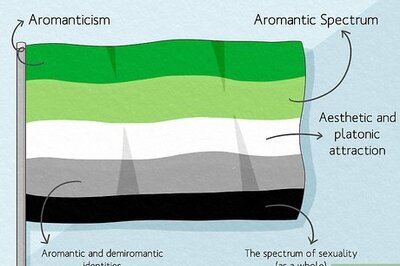

Comments
0 comment